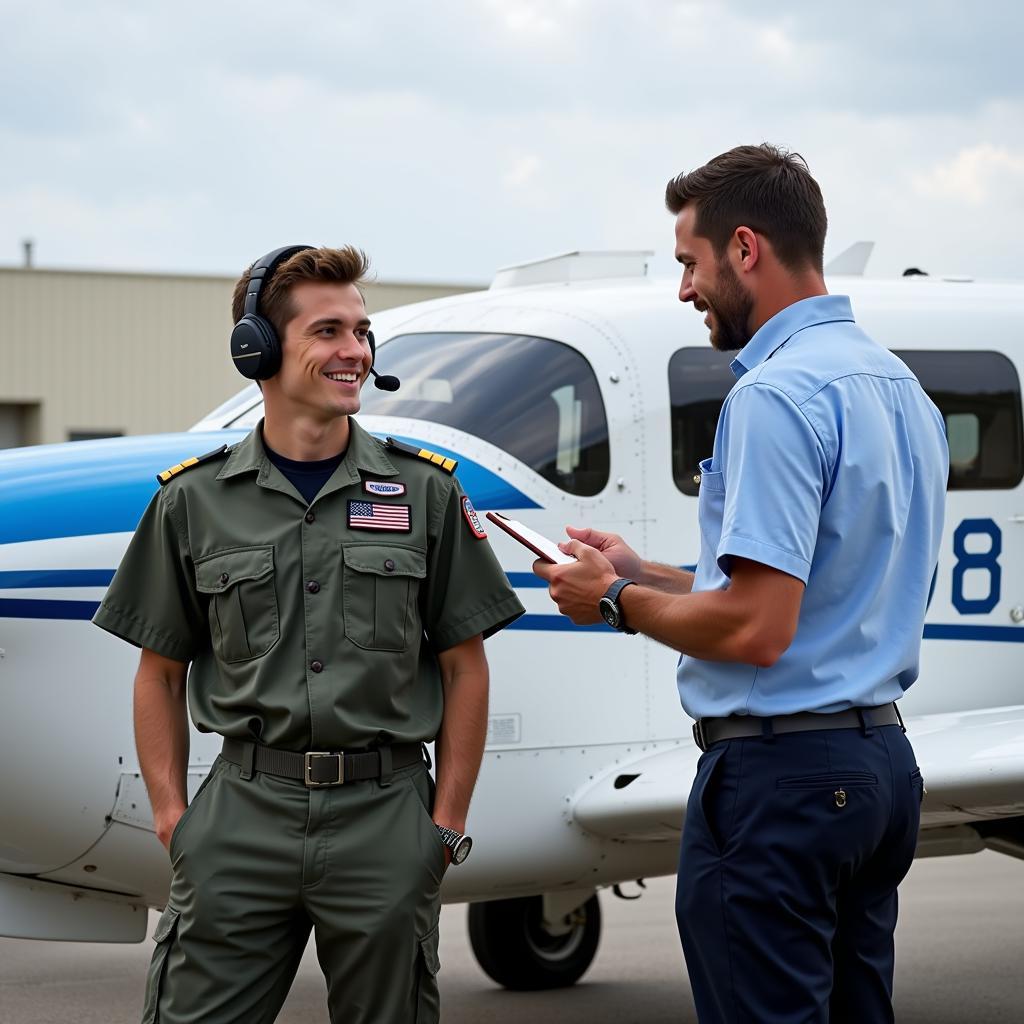Aspiring to become a pilot in Pakistan? A pilot course is the gateway to soaring through the skies and embarking on a rewarding career in aviation. This comprehensive guide provides valuable insights into pilot training programs, eligibility criteria, top flying schools, career prospects, and more.
Understanding the Pilot Course Landscape in Pakistan
Pilot courses in Pakistan are designed to equip aspiring aviators with the necessary knowledge, skills, and licenses to fly aircraft professionally. These courses cover a wide range of theoretical and practical aspects of aviation, including:
- Air Navigation: Principles of flight, meteorology, air traffic control procedures
- Aircraft Systems: Engine operation, instrumentation, electrical and hydraulic systems
- Flight Performance and Planning: Weight and balance calculations, fuel management, route planning
- Human Performance and Limitations: Physiological effects of flight, decision-making, fatigue management
- Aviation Regulations: Civil aviation rules, airworthiness standards, licensing requirements
Types of Pilot Licenses in Pakistan
The Pakistan Civil Aviation Authority (PCAA) issues various types of pilot licenses, depending on the intended flight operations and aircraft category:
- Private Pilot License (PPL): Allows you to fly small aircraft for personal recreation.
- Commercial Pilot License (CPL): Authorizes you to fly aircraft for commercial purposes, such as passenger transport or cargo operations.
- Airline Transport Pilot License (ATPL): The highest level of pilot certification, required for commanding large commercial aircraft.
Choosing the Right Pilot Course for You
When selecting a Pilot Course In Pakistan, consider the following factors:
- Reputation and Accreditation: Opt for reputable flying schools approved by the PCAA.
- Course Structure and Curriculum: Ensure the course aligns with your career goals and license aspirations.
- Flight Training Facilities: Evaluate the quality of aircraft, simulators, and training airspace.
- Instructor Experience: Look for experienced instructors with a strong aviation background.
- Cost and Financing Options: Compare course fees, living expenses, and potential scholarship opportunities.
 Pilot training in Pakistan
Pilot training in Pakistan
Top Flying Schools in Pakistan
Pakistan boasts several esteemed flying schools that offer world-class pilot training programs:
- Pakistan International Airlines (PIA) Training Centre: Known for its comprehensive CPL and ATPL courses.
- Karachi Aero Club: A historic institution offering a range of pilot training programs, including PPL and CPL.
- Lahore Flying Club: Provides quality flight training and scenic flying experiences.
- Rawalpindi Flying Club: Offers various pilot licenses and specialized training courses.
Career Opportunities for Pilots in Pakistan
The aviation industry in Pakistan is growing steadily, creating promising career opportunities for qualified pilots. Major employers include:
- Commercial Airlines: PIA, Airblue, SereneAir
- Charter and Cargo Operators: Blue Air, Vision Air International
- Flying Schools: As flight instructors or examiners
- Government and Military: Pakistan Air Force, government aviation agencies
Pilot Salary Expectations in Pakistan
Pilot salaries in Pakistan vary based on factors such as experience, employer, and type of operation. Entry-level pilots can expect to earn around PKR 150,000 to 250,000 per month, while experienced airline captains can earn over PKR 1 million per month.
FAQs about Pilot Courses in Pakistan
What are the eligibility criteria for a pilot course in Pakistan?
To be eligible for a pilot course, you typically need to:
- Be at least 18 years old (16 for PPL)
- Have a minimum educational qualification of intermediate or equivalent
- Pass a medical examination conducted by a PCAA-designated medical examiner
How long does it take to become a commercial pilot in Pakistan?
The duration of a CPL course typically ranges from 18 to 24 months, depending on the chosen flying school and individual progress.
Is it expensive to pursue a pilot course in Pakistan?
Pilot training can be expensive, with course fees ranging from PKR 3 million to 6 million or more. However, various scholarship programs and financing options are available.
What are the physical and mental requirements for becoming a pilot?
Pilots need to be physically fit with good eyesight, hearing, and overall health. They should also possess strong communication skills, situational awareness, and decision-making abilities.
What are the career progression opportunities for pilots?
Pilots can advance their careers by gaining experience, obtaining higher licenses (e.g., ATPL), or specializing in specific aircraft types or operations.
Conclusion
Embarking on a pilot course in Pakistan is a transformative journey that demands dedication, passion, and a thirst for adventure. By choosing the right training program and staying committed to your goals, you can soar to new heights in the exciting world of aviation.
For any queries or assistance regarding pilot training in Pakistan, feel free to reach out to our expert team. Call us at +923337849799, email us at news.pakit@gmail.com, or visit our office located at Dera Ghazi Khan Rd, Rakhni, Barkhan, Balochistan, Pakistan. We are available 24/7 to help you navigate your path to becoming a skilled aviator.